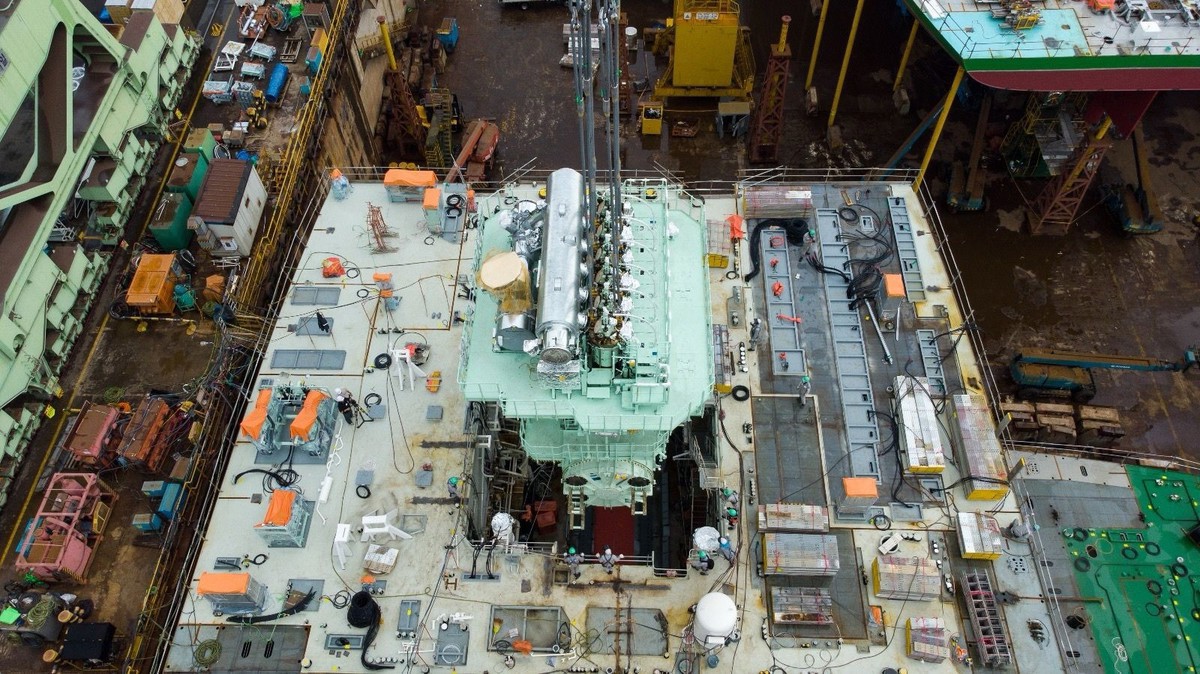Loopholes in IMO’s net-zero framework risk derailing transition – WinGD
The IMO’s newly approved net-zero framework still contains critical gaps that could potentially undermine its overall effectiveness, Dominik Schneiter has warned.
 IMAGE: An aerial shot of WinGD's ammonia-capable dual fuel engine installation on EXMAR vessel. Winterthur Gas & Diesel.
IMAGE: An aerial shot of WinGD's ammonia-capable dual fuel engine installation on EXMAR vessel. Winterthur Gas & Diesel.
Dominik Schneiter is the chief executive of Swiss engine manufacturer Winterthur Gas & Diesel (WinGD).
WinGD recently installed its first ammonia-capable dual-fuel engine on an LPG/ammonia carrier under construction for EXMAR. The company said in January that it has secured 30 orders for ammonia engines across the bulk carrier, container ship and gas carrier segments. WinGD has already launched it LNG-capable engines and has received orders to supply methanol dual-fuel and methanol-ready engines for more than 30 container ships.
In a social media post, Schneiter pointed to both the constricted timeline for developing financial incentives and the reliance on “outdated” default emission factors for alternative bunker fuels as major obstacles to the effective global rollout of the IMO’s net-zero framework.
The IMO framework is expected to be formally adopted in October, with global implementation expected in 2028.
However, the current text has yet to set clear financial rewards for using low- and zero-emission fuels and clarity on the level of financial rewards is not due until 1 March 2027, Schneiter said.
This could leave shipowners just nine months to prepare investment decisions to meet the initial targets.
“Price the reward too low and operators may find it makes more commercial sense to ‘pay to pollute’ instead,” Schneiter cautioned, calling the timeline a potential “blind spot” for owners.
He also criticised the use of default emission factors for both well-to-tank and tank-to-wake emissions in the current framework, Default values account for outdated numbers and fail to reflect the “ongoing efforts by fuel producers, technology providers and fuel users to minimise emissions,” he argued.
Schneiter suggested the IMO bring forward the incentive planning process to give shipowners more certainty. He also urged to base emission factors on measured data rather than default values to align the framework with the industry’s progress in reducing emissions.
By Konica Bhatt
Please get in touch with comments or additional info to news@engine.online





